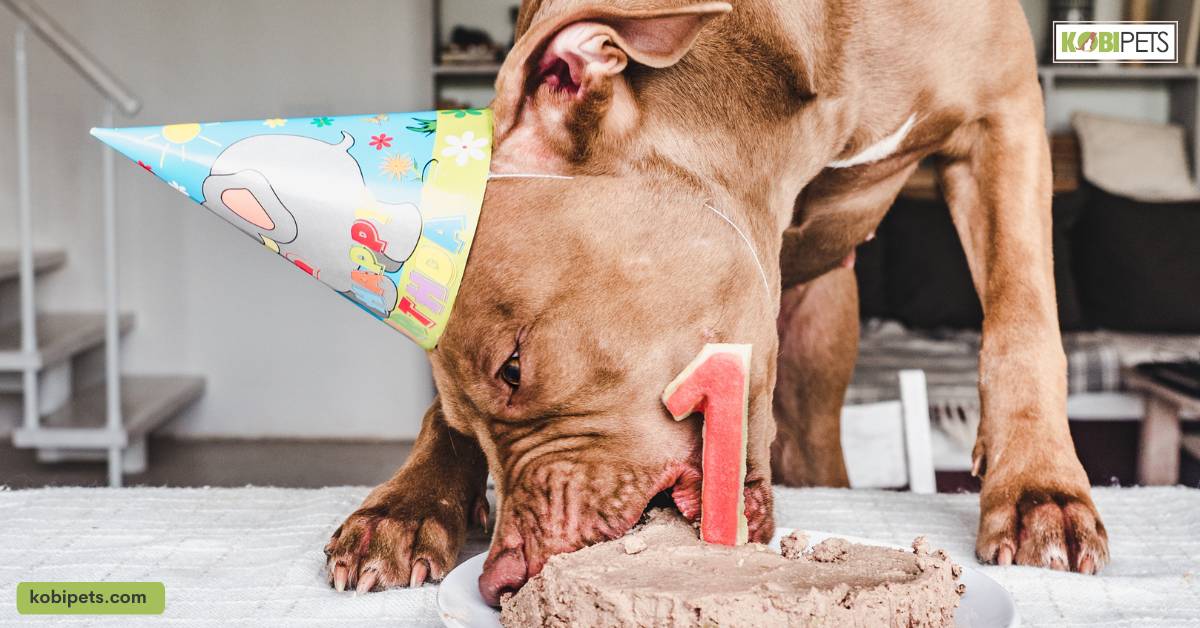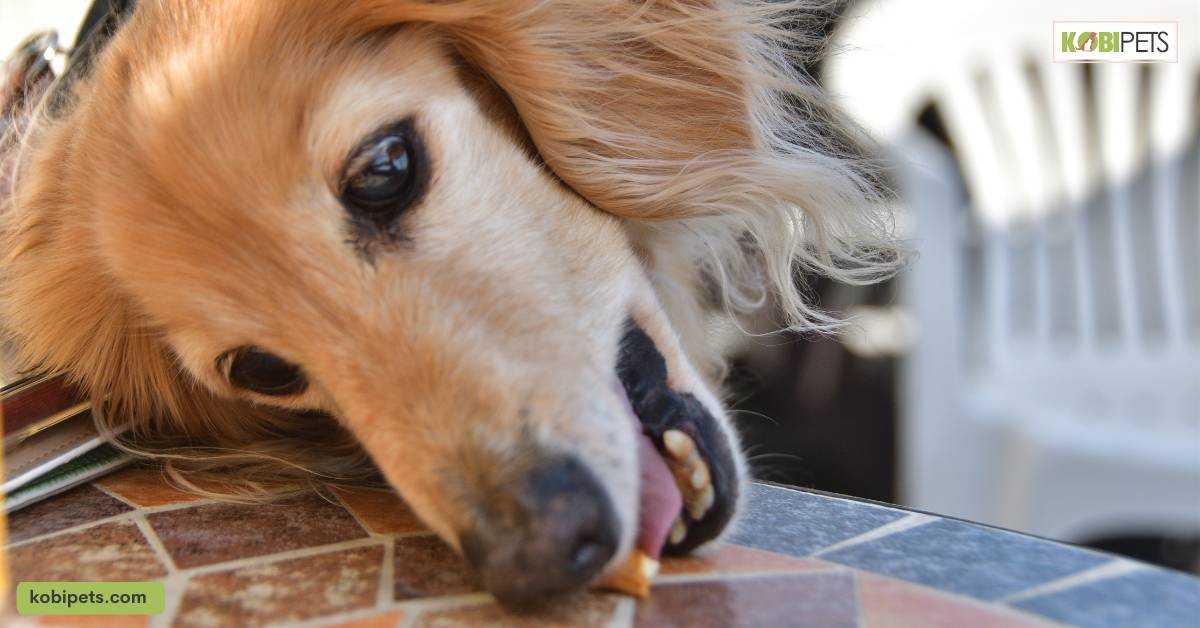Sure, it’s hard to resist those puppy dog eyes pleading for a taste of your chocolate chip cookie or piece of candy. But, as pet parents, it’s crucial that we know what’s healthy and what’s potentially harmful for our beloved furry friends.
Yes, dogs can eat sugar, but it’s important to do so in moderation and be mindful of what types of sugar they are consuming. Too much sugar can harm their stomach or pancreas and certain candy ingredients like xylitol are toxic to them. If your dog has eaten too much, contact your veterinarian right away.
Is Sugar Bad for Dogs?
Yes, sugar is indeed harmful to dogs. While it’s not toxic, excessive sugar consumption can lead to a host of health problems. Occasional consumption of a tiny sugary treat or dog-safe fruit won’t harm your dog, but consistent intake of sugary foods may result in health issues like stomach upsets, obesity, metabolic changes, and even diabetes.
In severe cases, pancreatitis could occur. Remember, chocolate and xylitol, common sugar substitutes, are poisonous to dogs. Balance is key: Treats should only make up 10% of your dog’s diet, with the remaining 90% comprising well-balanced dog food.
Can Dogs Have Other Sugars and Sugar Substitutes?
Just as with sugar, other sugars and sugar substitutes aren’t toxic to dogs, but that doesn’t mean they’re healthy. It’s important to understand the different types of sugars and their potential impact on your dog’s health.

Can Dogs Eat Sugar?
- Brown sugar: Brown sugar is processed sugar with molasses added back in. The molasses does contribute some minerals, but the sugar content can still lead to the same health issues as white sugar.
- Powdered sugar: Powdered sugar is just granulated sugar that’s been ground to a powder and mixed with a small amount of cornstarch to prevent caking. It’s just as harmful to dogs as other forms of sugar.
- Processed sugar: Processed sugar is the most common type of sugar and the one most people think of when they hear the word “sugar.” It’s also the one that can cause the most damage to your dog’s health when consumed in large amounts.
- Cane sugar: Cane sugar is extracted from the sugarcane plant and is slightly less processed than white sugar. It’s still not healthy for dogs, though.
- Xylitol: Xylitol is a type of sugar alcohol that’s used as a sugar substitute. It’s extremely toxic to dogs and can cause liver failure, seizures, and even death. If your dog ingests anything with xylitol, contact your vet immediately.
Can Dogs Eat Candy and Lollipops?
No, dogs should never eat candy or lollipops. While the sugar content is harmful in itself, candy often contains potentially toxic ingredients such as xylitol, chocolate, raisins, or nutmeg.
Additionally, hard candies like lollipops pose a choking hazard and could damage your pet’s teeth.
It’s essential to keep your candy stash out of your dog’s reach and to educate children about the dangers of sharing these treats with their furry friends. If you suspect your dog has ingested candy, contact your vet immediately.
Always prioritize your pet’s health by providing dog-safe treats in moderation.
Is Corn Syrup Bad for Dogs?
Corn syrup, despite not being toxic to dogs, is far from a healthy choice. Like sugar, it’s high in calories and low in nutritional value, making it a poor addition to their diet.
Regular intake of corn syrup can lead to detrimental health issues such as obesity and diabetes, as a direct result of the high sugar content.
Additionally, it can cause dental problems like tooth decay. While the occasional lick off a spoon won’t harm your dog, it’s best to avoid feeding them corn syrup or any products containing it on a regular basis.
Are Sugar Water for Dogs and Puppies Bad?
While sugar water might seem like a quick solution for hypoglycemia or low blood sugar in dogs, it’s not recommended by veterinarians. This is because it can cause a rapid increase in blood sugar, which may lead to other complications.
Instead, if you suspect your dog is experiencing a hypoglycemic episode, it’s advisable to provide them with a high-protein meal or treat. This helps to stabilize their blood sugar levels in a more controlled manner.
Always consult with a vet if you’re unsure about how to handle such situations with your pet.
Do Dogs Like Sweets?
Yes, dogs do have a fondness for sweet flavors. This is because, like humans, they have taste buds that can detect sweetness. However, their taste buds are not as numerous as ours, with dogs having around 1,700 compared to our 9,000.
While their limited number of taste receptors might make them less discerning about food flavors, many dogs still show a preference for sweet items, such as certain fruits and vegetables.
But remember, although your pet might enjoy a sweet treat now and then, it’s essential to feed them a balanced diet and avoid foods harmful to them.
How Much Sugar Can a Dog Have?
The correct amount of sugar a dog can consume largely depends on its size, breed, and overall health. However, as a general guideline, treats (including sweet ones) should not constitute more than 10% of a dog’s diet. This doesn’t mean you should serve your dog a bowl of sugar!
Ideally, the sugar they ingest should come from healthier sources, such as fruits. But remember, even fruits should be given in moderation due to their sugar content.
Vegetables are a better alternative as they contain less sugar.
If your dog happens to consume a high-sugar treat, it may experience gastrointestinal discomfort, including gas, bloating, vomiting, or diarrhea, depending on the amount eaten.
Therefore, it’s always best to avoid giving your dog sugary treats or candies.
What to Do if Your Dog Has Eaten Sugar or Candy
If you discover that your dog has consumed a significant amount of sugar or candy, it’s essential to take immediate action. You should contact your veterinarian promptly as the sugar can inflict serious harm to your dog’s stomach and pancreas.
If your dog has ingested anything containing xylitol, it’s even more critical to seek veterinary care as xylitol is highly toxic to dogs. Symptoms of xylitol toxicity include lethargy, vomiting, loss of coordination, potential seizures, or even liver failure.
While waiting for veterinary advice, ensure your dog has access to plenty of fresh water and monitor its behavior closely. Remember, the key to handling such situations is quick action and staying calm.
In conclusion
Your furry friend’s health should always be a top priority, and understanding their dietary needs plays a significant role in that. While dogs may technically be able to consume sugar, it’s far from the best choice for their health.
The same goes for sugar substitutes and sweet treats like candy. Instead, sticking to a balanced diet and dog-safe treats is the key to ensuring your pup’s well-being. If your dog does consume a significant amount of sugar or any toxic substance, remember to contact your vet immediately.













